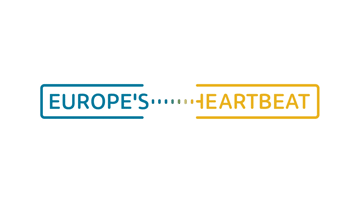- Eight mayors from NRW explain their future strategies for the real estate industry and urban development
Under the umbrella of the location marketing campaign "Germany at its best: Nordrhein-Westfalen", North Rhine-Westphalian cities, regions and real estate companies are presenting themselves for the ninth time at the international commercial real estate trade fair MIPIM in Cannes. Organized by the NRW.INVEST state-owned economic development agency, the cities of Aachen, Bochum, Bonn, Cologne, Dortmund, Düsseldorf, Duisburg, Essen, Mönchengladbach, Oberhausen, the regional agency Business Metropole Ruhr, the Rhineland Metropolitan Region and around 30 companies from the real estate industry will be represented at the NRW Pavilion.
Today's program includes a "speed dating" session between eight mayors from the Rhineland and the Ruhr Metropolis as well as representatives of the international press. "The NRW cities on the Rhine and Ruhr are presenting innovative urban and district development in the digital age at MIPIM," says Petra Wassner, CEO of NRW.INVEST. "The focus is on smart city projects, housing construction and the conversion of urban spaces".
Thomas Geisel, Mayor of the state capital Düsseldorf, emphasizes: "Urban spaces are a scarce commodity. We are therefore developing numerous plots with the aim of reconciling the demands placed on residential, leisure and green spaces as well as commercial properties in urban areas. Urban density and quality of life are not mutually exclusive: People like living in urban districts."
All cities have a special focus when it comes to the topic of housing. Henriette Reker, Mayor of the City of Cologne, explains: "There is fundamental agreement with the housing industry that housing construction – and affordable housing at that – must have the highest priority." She appeals to the real estate industry: "I expect investors to assume a healthy degree of social responsibility in the design of housing projects. The focus must not only be on maximizing returns, but above all on a lively mix of neighborhoods. In addition, intelligent mobility concepts and climate protection aspects should be an integral part of every project development".
The city of Bochum also focuses on housing. Mayor Thomas Eiskirch says: "The city of Bochum has the strategic goal of creating 800 new apartments every year. This goal is ambitious for Bochum and aimed at supporting further growth." Eiskirch would like to see "a commitment to the realization of new forms of living with networked local mobility solutions". This also includes expanding the charging infrastructure for electric vehicles.
Ullrich Sierau, Mayor of the City of Dortmund, underlines: "We want to consolidate the growth of previous years of approx. 1,500 apartments per year and further increase it to approx. 2,000 apartments per year. We have the spaces, the speed in the planning procedures and a good cooperation culture with the real estate industry and especially with the housing companies. We have the necessary qualitative courage – see PHOENIX Lake – and the earliest form of sustainability: ‘Westphalian stubbornness’."
Ashok Sridharan, Mayor of the Federal City of Bonn, would like to see "many more new and innovative approaches from the real estate industry". Bonn is home to important UN organizations. As president of the international city network ICLEI Local Governments for Sustainability, which was founded in New York in 1990 at the end of the first World Congress of Local Governments for Sustainable Development and is headquartered in Bonn, Sridharan advocates "global cooperation on sustainability".
Sören Link, Mayor of the City of Duisburg, points out that "the Green City Plan for Duisburg has been in place since August 2018, combining aspects of digitalization and sustainability. Another matter that is close to my heart is participating in the annual round trip for investors, during which we present current projects to a circle of potential investors. The response has been remarkable; several industry players have discovered Duisburg as a result."
"Urban development can only be successful if all actors work together and as equals," emphasizes Thomas Kufen, Mayor of the City of Essen. He focuses on the dynamics: "Urban development is a continuous process that has to adapt to the changing requirements of citizens and companies and is driven even faster by digitalization. The aim should therefore be to involve all relevant actors as early as the definition of the requirement profile."
The city of Mönchengladbach acts in the same way. "Entrepreneurs and representatives of the real estate industry initiated a master plan for Mönchengladbach in 2010, which was implemented by the world-famous architect Sir Nicholas Grimshaw. Based on this, the urban development strategy mg+ Growing City was developed in 2016," explains Hans Wilhelm Reiners, Mayor of the City of Mönchengladbach. "We are making Mönchengladbach fit for the future with the reactivation of brownfields, land conversions, the development of new residential areas and competition procedures for quality assurance."

